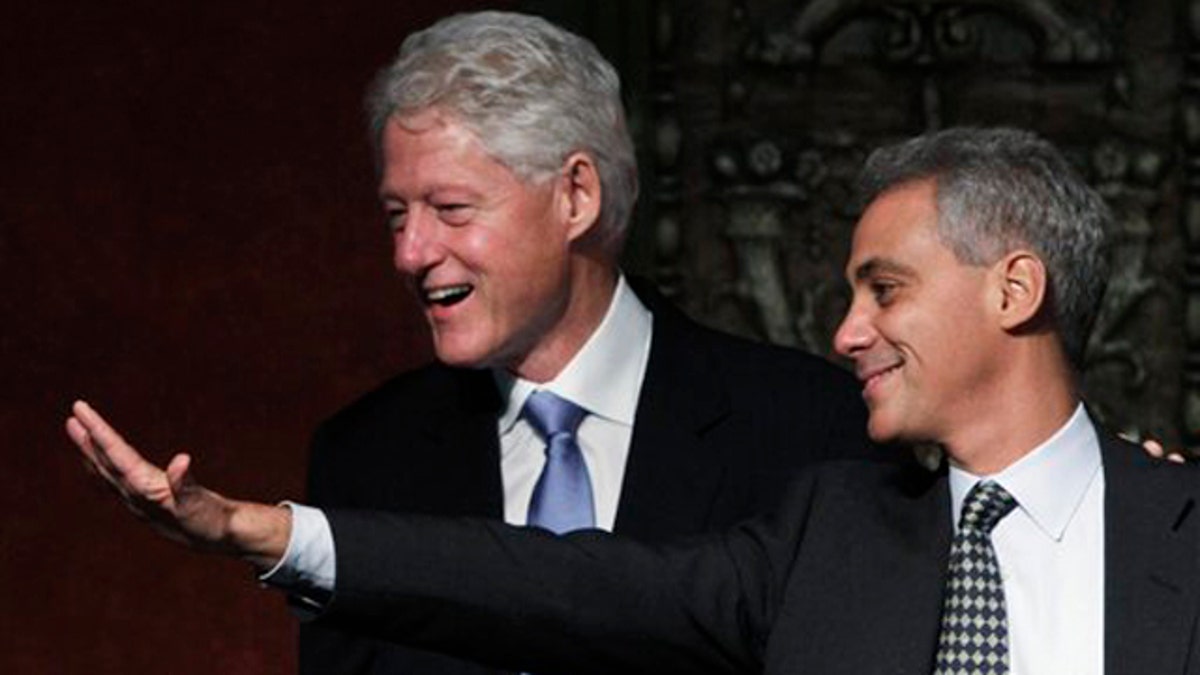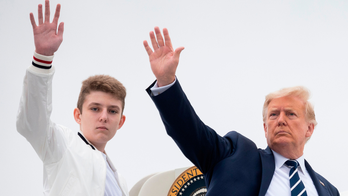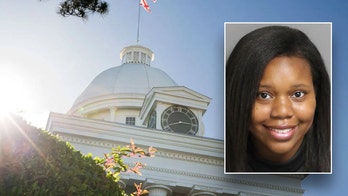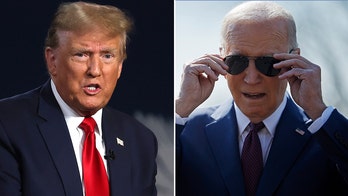
In this Jan. 18 file photo, former President Bill Clinton appears at a rally for Chicago mayoral candidate Rahm Emanuel in Chicago. (AP2011)
He's stumping for Rahm Emanuel. He's sorting out the political mess in Haiti. He's back in Arkansas holding a civil-rights ceremony at his presidential center.
It's a bird, it's a plane. It's ... Bill Clinton?
The former president who has worked diligently to seal his place in the pantheon of American statesmen doesn't seem to be showing any signs of letting up 10 years after leaving office in a shadow of impeachment.
Clinton, along with former President George H.W. Bush, this week was named an honorary chairman for the new National Institute for Civil Discourse, a center created at the University of Arizona in Tucson in the wake of the shooting last month of U.S. Rep. Gabrielle Giffords, D-Ariz., and 18 others.
Clinton said in a written statement he believes the center can "elevate the tone of dialogue in our country."
Gene Healy, a political author and vice president at the Cato Institute, called Clinton an interesting choice for the civil discourse center.
"I'm not sure that Bill Clinton was really known for inculcating a spirit of civility when he was president," he said.
But he said Clinton's steady pace of public deeds and appearances make sense. "He always seemed to have this desire for frenetic activity," Healy said.
That suits Clinton, whose popularity is high as President Obama struggles with the weight of the Oval Office. A new era of Clinton appreciation has enabled the former president, free from the strictures of elected post, to become a shadow Cabinet, campaign headquarters and rock band rolled into one.
Everybody wants to be an "FOB" -- Friend of Bill -- and he's all too eager to oblige.
"I am happy to be here," Clinton declared during his semi-impromptu volley with reporters in the White House briefing room in December.
The Clinton cachet is not a new phenomenon. He has made millions from books and speeches in a way no other living ex-president has.
But he seems to be stepping up his performances, responding to crises, campaigning and responding to calls around the world as if they emitted a bat-like signal only he could see.
"He likes it," said presidential history whiz Martha Joynt Kumar, a professor with Towson University. Asked what makes Clinton stand out from other former presidents, Kumar said he fills the "totality" of possible roles.
Perhaps foremost is that of campaigner. Though Clinton stepped in it several times during the 2008 campaign, by getting a little too aggressive against candidate Barack Obama while campaigning for his wife, now Secretary of State Hillary Clinton, it was a short-lived setback.
He was prolific on the campaign trail ahead of the 2010 midterm elections. And he didn't dare miss the opportunity to stump last month in Chicago for his protege, rallying voters in support of Emanuel, a former senior adviser in Clinton's White House who is the frontrunner in the city's mayoral election Tuesday.
But Clinton has become more than just a session musician for campaigns.
As the U.N. special envoy to Haiti, he visited the troubled country again last week to meet with the two presidential candidates who are heading into a runoff in March. He wasn't backing a candidate, just trying to ensure a smooth transition to an administration that can continue rebuilding the earthquake-stricken island.
Clinton also famously traveled to North Korea in 2009 to retrieve two jailed American journalists being held by Kim Jong Il's regime.
Plus he's ventured into more obscure territory, perhaps for the sake of repaying favors.
Earlier this month, Clinton submitted testimony in Hawaii on behalf of entertainment companies lobbying for increased tax credits in exchange for filming there. Clinton is on the advisory board for entertainment company Shangri-La, whose founder knows the president and has donated millions to the Clinton Foundation.
Kumar said that one of the factors helping Clinton's post-presidency image is the economic contrast between now and then. Clinton governed during a period of economic prosperity, compared with the rut of recession and lethargic post-recession the country is currently stuck in.
People don't just fondly recall the Clinton persona. They recall "how good the times were," Kumar said.
Clinton isn't the first ex-president to keep a frenetic pace. Theodore Roosevelt went on an African safari and toured Europe after leaving office. Then he returned to challenge his successor William H. Taft, first through the GOP nomination process and later as a third-party candidate on the Bull Moose Party ticket. They both lost to Woodrow Wilson. After the defeat, Roosevelt went on an expedition in South America and later returned to the political arena again as a fierce critic of Wilson. Taft became a U.S. Supreme Court justice.
John Quincy Adams also remained very much in the public eye, becoming the only president to win election to the House of Representatives after leaving the presidency.
Clinton may not join the Little Rock City Council, but he is trailblazing in his own right. Kumar noted that unlike some of his contemporaries -- say, Jimmy Carter -- Clinton has approached his post-presidency with a spirit of cooperation, teaming up with other ex-presidents to tackle the big jobs. Hence the efforts to work with George H.W. Bush on tsunami relief and civil discourse and with George W. Bush on Haiti earthquake relief.
A Gallup poll released Feb. 18 showed Clinton coming in third on the list of America's greatest presidents, ahead of John F. Kennedy, George Washington and Franklin Delano Roosevelt. Former President Ronald Reagan came in first, with 19 percent, followed by Abraham Lincoln with 14 percent and Clinton with 13 percent. Obama placed seventh, George. W. Bush was 10th, Carter was 12th and George H.W. Bush placed 14th.




